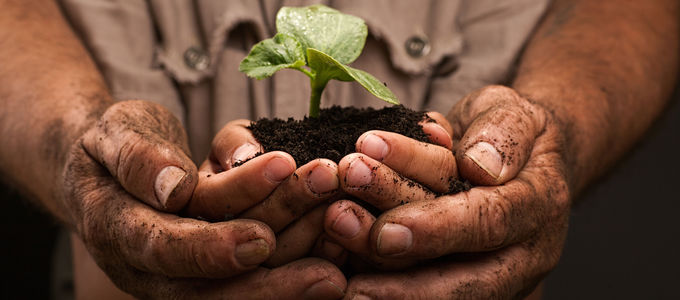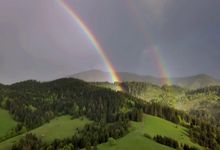More than a parable: things we can learn from the sower!
The Parable of the Sower? Wasn’t that about the field of the heart? Yes and no! Actually, the focus is on something else. However, this can only be seen when looking at the whole picture—or by listening closely, as in the following overview.

Preaching 2.0: Jesus was getting serious. He was no longer content with giving an occasional sermon in his backyard, but rather decided to systematically make His way through the whole region—“through every city and village”. That is how the eighth chapter of Luke begins. What follows is a block of themes that revolve around hearing and seeing—and understanding properly.
Mark 4 and Matthew 13 enclose this unit of content with a formal set of “brackets”. These open up when Jesus began to teach the people “many things by parables” in their specific situation. And the brackets close again a good 30 verses later with the general note that “without a parable He did not speak to them“.
An appeal to listen up
At the heart of this instructional unit we find the Parable of the Sower. The seed he sows falls upon various kinds of ground, and accordingly develops in different ways and to varying degrees. Jesus Himself provides the interpretation, and He does so exclusively for the benefit of the Apostles: in some people the word of God cannot even land because the seed is immediately snatched away by evil. In others it germinates, but does not put down roots, and thus withers away. In other cases, it does manage to develop, but ultimately chokes on the deception of wealth and the thorny cares of this world.
The seeds only bear fruit where they find the appropriate receptiveness, perseverance, and activity in people. Jesus regards “these who hear the word of God and do it” as His true family. And so this parable is traditionally understood as an appeal to each and every individual believer to prepare the ground in his or her own heart for the word of God. After all, Jesus does call out, “He who has ears to hear, let him hear!” and “Take heed how you hear!”
But that does not explain why Jesus suddenly begins to explain the purpose and meaning of the parables in Luke, or why He suddenly brings up the image of the lamp under the bushel. Not to mention why Mark and Matthew weave other parables into this theme complex, namely the Parable of the Growing Seed, the Parable of the Wheat and the Tares, and the Parable of the Mustard Seed. And these images no longer really fit in with the appeal to prepare the field of the heart. There is much more to it than that!
Training for preachers
Preaching 3.0: Soon the sower was no longer called Jesus, but rather Peter, John, James, and so on. After all, already in Luke 9, we read of how the Apostles made their way through the towns on their own. By this point, it would have been an enormous help to them, not only to have heard how the seed might easily miss its mark, but also how abundantly rich the harvest would be in the end—namely thirty, sixty, and even a hundredfold.
From this point of view it also fits into the picture that the seed will grow on its own, even if the sower does not know how. The same goes for the idea that the master wouldn’t want to separate the tares from the wheat until the harvest. And that the mustard seed, as small and insignificant as it may appear, will produce such an immense plant.
Letting the light shine!
Even though Jesus gave the Apostles a head start on the knowledge front by repeatedly providing them with exclusive interpretations, His parables themselves were actually addressed to all of His listeners. And the light of preaching 4.0—which is to shine in all its radiance from its rightful place on the lampstand for all to see, He now sees rising in those very hearts in which the word of God brings forth its fruit.
Therefore the lessons derived from the Parable of the Sower are still addressed today to all those who are charged with preaching the word of God. And to all those who are concerned about the life of faith of their loved ones. Of course, it is also meant for all those who simply wish to bear witness of the love of Jesus Christ through their own actions.
- Let us first of all prepare the field of our own hearts for the word of God.
- Let us not be disappointed if the seed we sow does not seem to grow. In the end a rich harvest beckons.
- Even faith does not grow any more quickly by pulling on its tender shoots! Let God do His thing.
- The Lord Himself will decide what the weeds are at the right time.
- No word, no gesture, and no deed is too small for great things to grow from it.
Photo: V&P Photo Studio - stock.adobe.com














